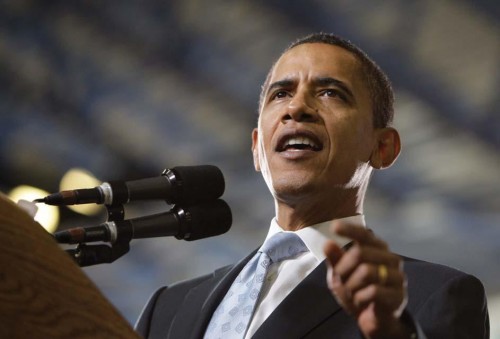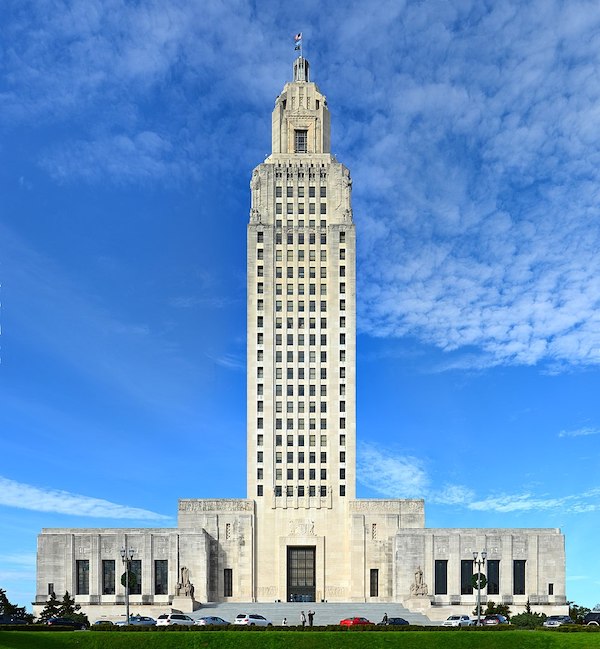Nov. 4
November 4, 2008
Roger "Jay" Rebstock
November 6, 2008Now the hard part.
Barack Obama essentially came out of nowhere, beat the Democratic establishment, conquered doubts about his experience and overcame questions about his race to be elected the first black president after a grueling campaign that lasted nearly two years.
But for Obama there’s no time to savor his unprecedented victory.
Now he faces unprecedented challenges.
The president-elect must immediately confront the worst economic conditions since the Great Depression, determine the next steps in two lingering wars, and lead his Democrats, including liberals expecting that the change he promises will come instantly.
It won’t.
On the heels of a campaign in which cash wasn’t a concern, Obama has to tackle all of those tasks with no room in the budget as the nation heads for a painful, perhaps long-lasting, recession.
Even as he celebrated, Obama acknowledged “the enormity of the task that lies ahead,” and offered a sobering assessment.
“We know the challenges that tomorrow will bring are the greatest of our lifetime – two wars, a planet in peril, the worst financial crisis in a century,” Obama said. “There’s new energy to harness, new jobs to be created, new schools to build, and threats to meet, alliances to repair.”
He warned: “The road ahead will be long. Our climb will be steep. We may not get there in one year or even in one term.”
No new president has faced so much since Franklin Delano Roosevelt – and even he didn’t have two wars on his plate.
Roosevelt had four months to come up with programs to address the Great Depression before he took office on March 4, 1933.
Obama gets just 2 1/2 to put together his government; inauguration is Jan. 20.
He will chart the country’s course against this dreary backdrop: Unemployment is at 6.1 percent and predicted to rise as high as 7.5 percent next year; pessimistic consumers have curtailed borrowing and spending; home foreclosures are rampant; Medicare, Medicaid and Social Security face huge financial problems; and, 152,000 U.S. troops are in Iraq more than five years after the initial invasion, while 32,000 are in Afghanistan in the sixth year of the war against terrorism.
With Democrats expanding their majorities in both the House and Senate, Obama will have to figure out how to lead a country that’s more conservative than liberal while trying to satisfy the left wing of his party. He will face demands for a quick pullout from Iraq. He’s promised withdrawal, but carefully.
Perhaps addressing his party faithful, Obama said: “There are many who won’t agree with every decision or policy I make as president. And we know the government can’t solve every problem. But I will always be honest with you about the challenges we face.”
From the outset, how Obama acts to deal with these conditions will set the tone for his presidency.
Voters got an early glimpse of his style last month when Wall Street collapsed, stocks fluctuated and the government intervened. He struck a cautious stance and deferred to lawmakers dealing directly with the problems. He was deliberative and careful in his response – perhaps just the approach voters were seeking after eight years of what critics call President Bush’s cowboy approach.
Yet, Obama may be blamed for recession woes despite the fact that he inherited the mess from Bush. The troubles are on Obama’s watch now even if there’s little he can do about them. The president in power always suffers when the economy tanks. Just ask the first President Bush in 1992.
Indeed, coming in with a big victory doesn’t guarantee success.
Democrat Lyndon B. Johnson won with 61 percent of the vote in 1964. He won his Great Society programs in his first two years but his administration essentially collapsed in the final two with the escalation of the Vietnam War.
In choosing Obama as the 44th president, the nation took a historic leap beyond its legacy of slavery and toward healing racial tensions just four decades after the tumultuous Civil Rights movement.
Politically, Obama’s election amounted to a wholesale rejection of the status quo after eight years of Bush and Republican rule.
Voters were willing to take a chance on a relative newcomer to the national stage. Obama is a 47-year-old black man from Chicago with a liberal voting record who is in just his first Senate term and has offered few specifics on how he would govern.
Culturally, Obama’s victory was so much more for a nation on the verge of becoming a true melting pot; government estimates say white people will no longer make up a majority of Americans by 2042.
The son of a black father from Kenya and a white mother from Kansas, Obama’s call for change created a movement at a time of great upheaval in the country. And, that proved to be a large enough force to overcome lingering prejudices.
To be sure, the economy proved a powerful motivator.
More than half of voters named it their top issue. And, nearly all voters said the economy was in bad shape and said they were worried about the economy’s direction. Obama had the advantage among these voters.
Race didn’t appear to be much of a hurdle.
Obama won nearly half of the white vote while nearly all blacks and two in three Hispanics supported him.
And, although Obama played down his skin color, it played a part in his general election strategy. Minorities, as well as youth, were identified early on as a key demographic to register and court. That appeared to work. Blacks, Hispanics and voters under age 30 turned out in droves.
All – whites, blacks, women, Hispanics, young people, Democrats, Republicans and independents – will have high expectations for Obama’s presidency.
EDITOR’S NOTE – Liz Sidoti covers the presidential campaign for The Associated Press and has covered national politics since 2003.
Democratic Sen. Barack Obama was elected the 44th president of the United States Tuesday, carrying over 300 electoral votes and becoming the country’s first black commander in chief. * AP Photo












